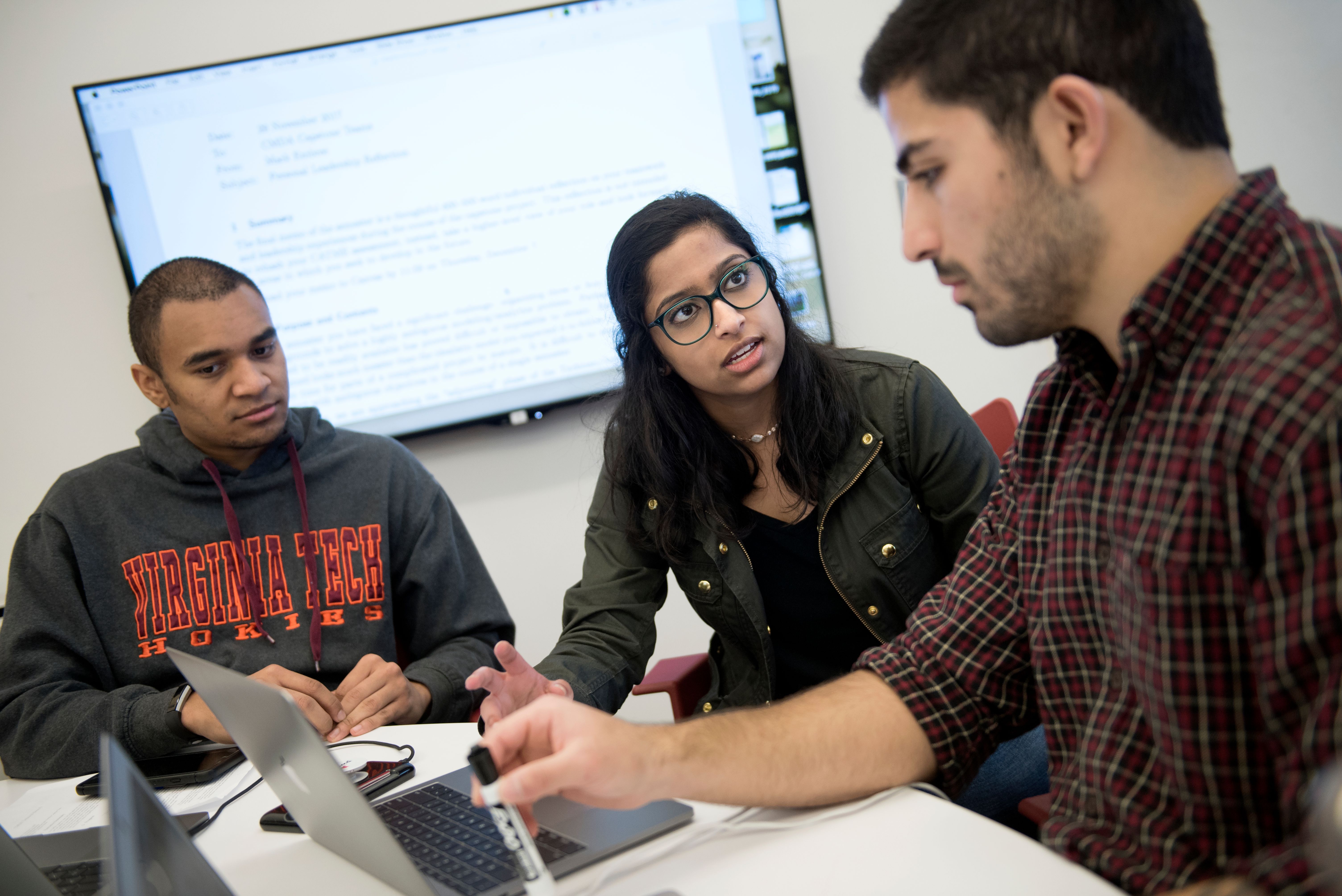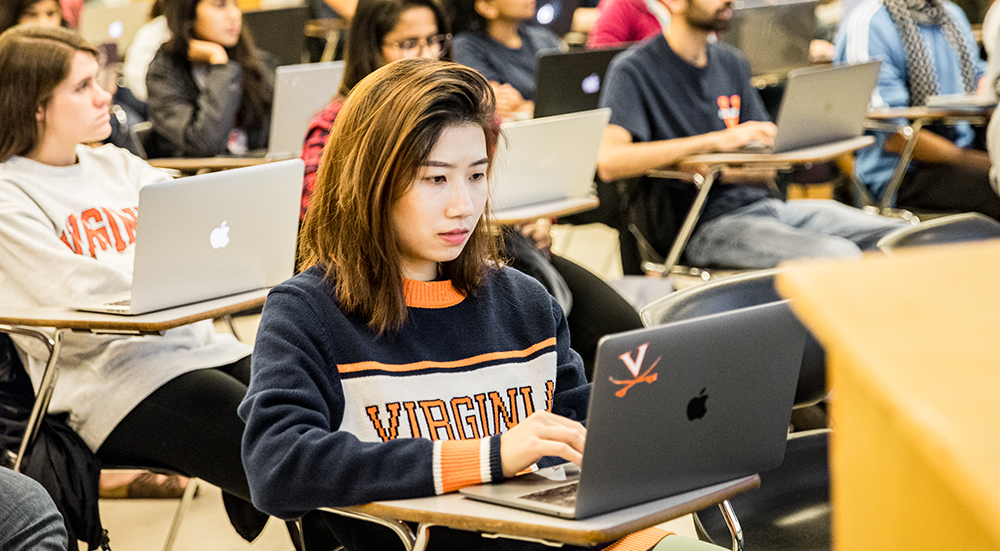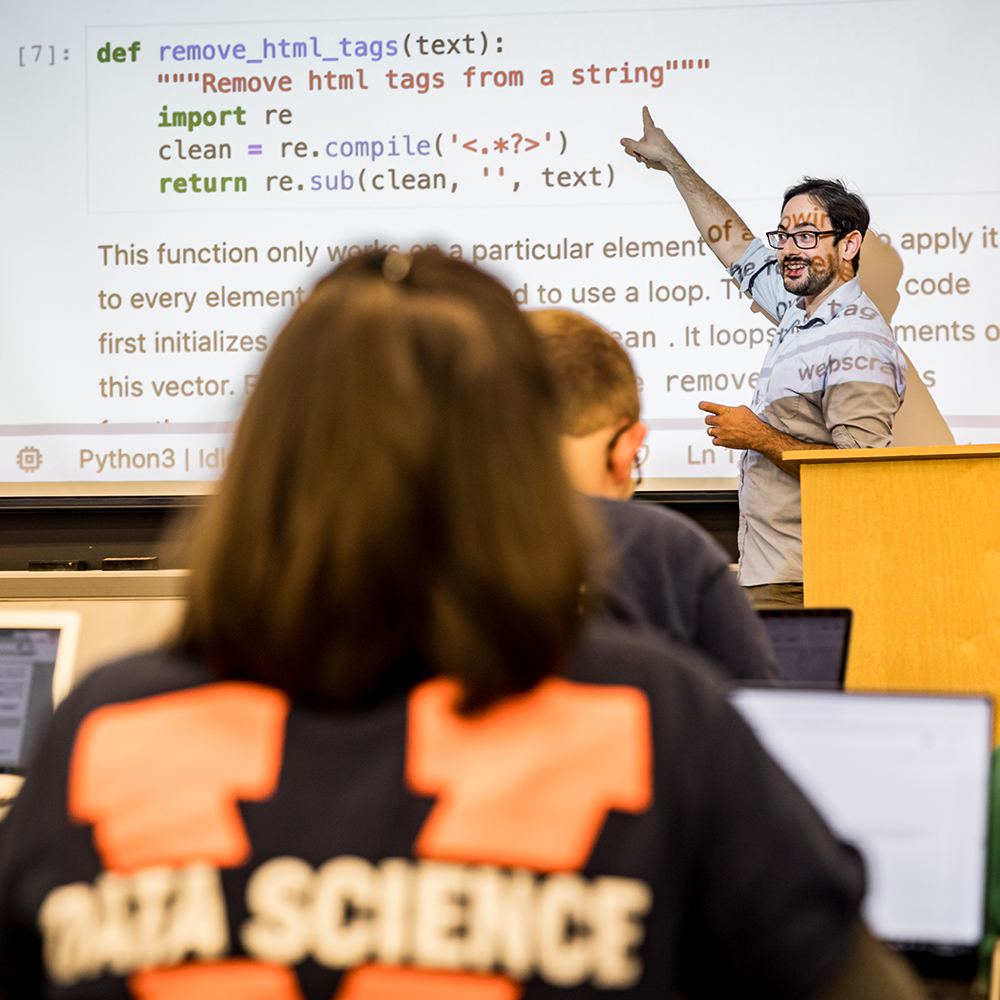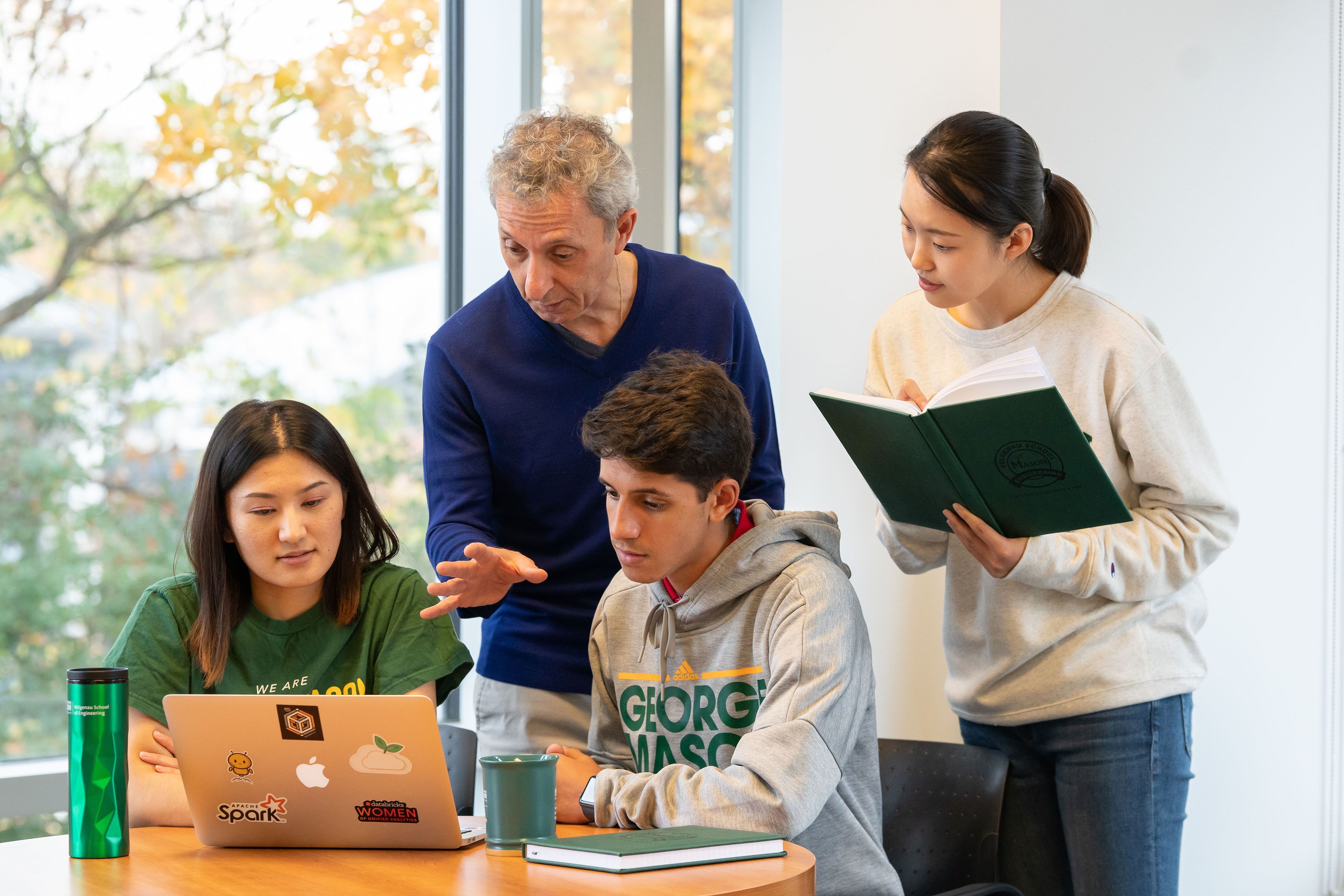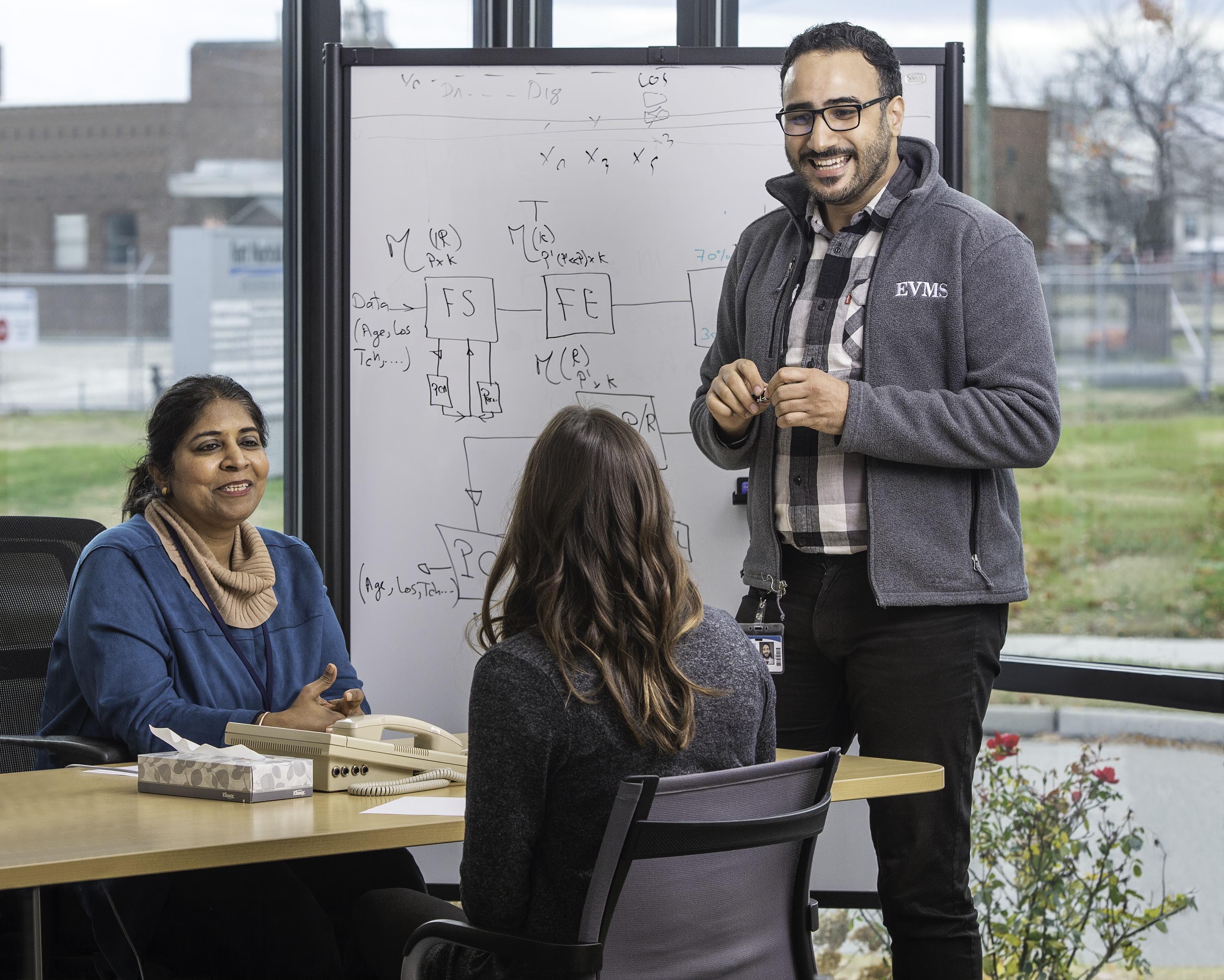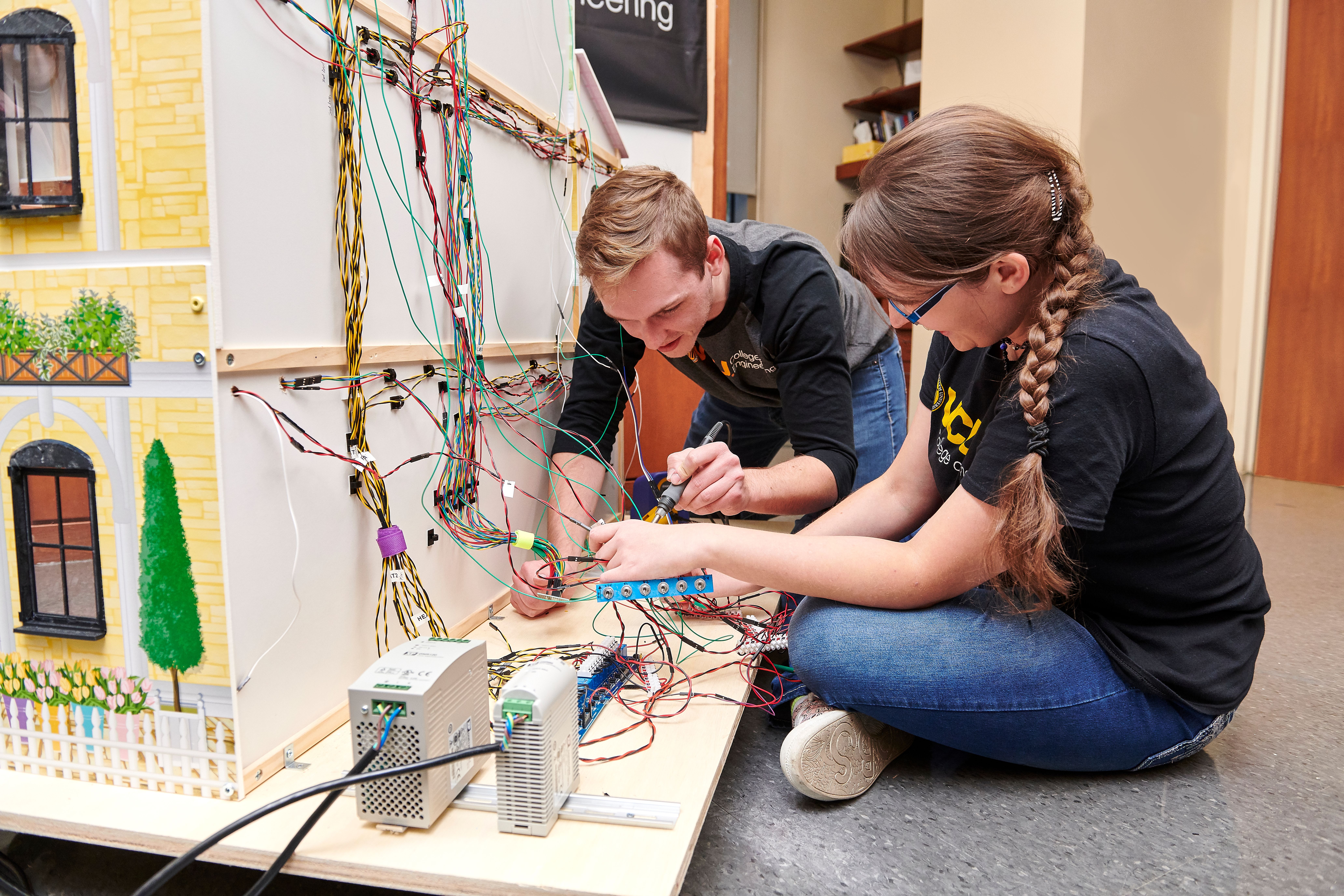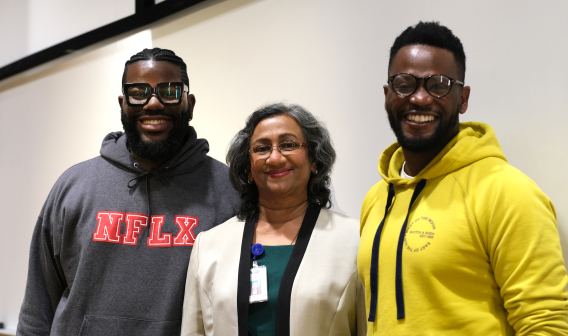Down to a [Data] Science
Several Virginia higher education institutions now offer courses to help students and working professionals learn how to use data to inform decision-making and solve problems — and some are helping to shape research that could ultimately impact medical, financial, and numerous other fields.
Virginia Tech: Focused on Collaboration
Virginia Tech's Computational Modeling and Data Analytics (CMDA) major combines instruction on topics such as data analytics and machine-learning strategies with academic elements from the university’s statistics, mathematics, computer science, and physics departments.
“All science now is really fueled by data,” College of Science Dean Sally Morton said. “There’s a need to understand how to use data effectively. By itself, data is nothing. It takes analysis to make it information that is actually [useful].”
The data extraction and analysis skills students learn in the CMDA Bachelor of Science program could be applied in business, engineering, or other roles.
“Our data science degree has an emphasis on computation and simulation, which makes it very attractive for employers,” Morton said. “People are doing a lot of mathematical modeling to simulate what’s happening in the world. Data speeds up discovery.”
CMDA candidates can choose to pursue a biology-, physics-, or economics-based track and can also work on a semester-long assignment with a corporation.
“Unlike most majors, it doesn’t just encompass one department,” Morton said. “[The program] has been tremendously popular, both among students and employers.”
All science now is really fueled by data. There's a need to understand how to use data effectively. By itself, data is nothing. It takes analysis to make it information that is actually [useful].
University of Virginia: A New School to Meet Employer Needs
In January 2019, the University of Virginia announced plans to establish its first new school in more than a decade — one dedicated to helping students learn practical data science applications.
Featuring courses taught by dedicated faculty and others with joint appointments in other UVA schools, the new School of Data Science is an evolution of UVA’s Data Science Institute, which had been granting Master of Science degrees in Data Science since 2015.
Currently housed in a temporary location, the school is slated to break ground on a new building in the first quarter of 2020, thanks in part to a $120 million gift UVA received — its largest on record — from the Quantitative Foundation, a private philanthropic organization based in Charlottesville.
In addition to the usual students from STEM disciplines, students from nursing, history, and other areas have participated in the program, according to School of Data Science Founding Dean Phil Bourne, who said businesses’ growing demand for quantitative skills has helped fuel interest in data science-related instruction.
“Employers were beginning to identify the need to have this kind of training,” Bourne said. “It is endemic across all fields — there’s data wherever you are that potentially has the ability to improve what you’re doing.”
Along with its 11-month on-site master’s program and an online version, Bourne said the school hopes to develop Ph.D., undergraduate, and continuing education courses on the topic.
George Mason University: Multidisciplinary Training for Career Options
Graduate students who hope to become data scientists and analysts in sectors ranging from marketing to government intelligence study topics such as data mining, predictive analytics, and risk analysis in George Mason University’s Master of Science in Data Analytics Engineering program.
The training, according to James Baldo, director of the program, helps prepare them to work with data to find solutions for a broad range of problems and present the findings to stakeholders.
Approximately 10 concentrations, including applied or business analytics and cyberdata mining, are offered; students can also pick electives to create a custom course load.
“It’s innovative and pretty fast-paced. We try to give people a foundation with these courses,” Baldo said.
The school also offers a 12-credit data analytics graduate certificate program, which is open to individuals with an undergraduate degree. Last spring it debuted an online version of its data analytics M.S. program, so students are no longer required to come to the school’s Fairfax campus at least two nights a week.
Both master’s options, Baldo says, will help prepare participants to handle the type of diverse, potentially challenging data-science-based, problem-solving employers need help with.
“[Working with] this large volume of data is very tricky,” Baldo said. “In many cases, data has to be conditioned, cleaned, and prepared to be used for analysis. That takes a lot of time — and requires people with the right skill set.”
Eastern Virginia Medical School: Analyzing Practices to Improve Care
Launched in 2016, Eastern Virginia Medical School’s (EVMS) Healthcare Analytics and Delivery Science Institute (HADSI) provides grants of up to $25,000 and data science-related assistance for projects designed to help improve health outcomes in the Hampton Roads region.
Through a partnership with regional medical services provider Sentara Healthcare, HADSI is able to provide EVMS faculty, medical students, and residents with access to patient information for research projects from Sentara hospitals. Additionally, with the support of the EVMS Brock Institute, HADSI also provides Virginia Hospital Information data for research purposes.
The institute also offers data-related services, according to HADSI Director Dr. Sunita Dodani, M.D., Ph.D., such as helping researchers design a database or interpret analysis results.
The outcomes of these projects are tremendous such as increase in scholarly activities, external funding, and improved value proposition of healthcare.
“Patients were getting admitted with acute knee injuries,” Dodani said. “An abscess, many times, goes hand-in-hand with kidney damage, [but] a nephrologist would never know. Through this research, if care management changes or a lab value is higher, an electronic medical record system sends an alert to everybody taking care of the patient.”
HADSI provides research support to medical students, residents, and fellows and conducts regular research boot camps in collaboration with the graduate medical education office.
“We have resources and skills — people here who are experts in healthcare for research purposes,” Dodani said. “And capitalizing on the use of Sentara electronic medical record data can result in improved healthcare delivery.”
Virginia Commonwealth University: Real-World Examples and Experience
Undergraduate students pursuing a Bachelor of Science in Computer Science degree with a data science concentration at Virginia Commonwealth University are able to test out their classroom work through experiential learning opportunities, according to Krzysztof Cios, Ph.D., professor and chair of VCU’s Department of Computer Science.
In one instance, a group of students helped a finance company create an application to manage internal requests — an issue the company had been struggling to solve.
“Bringing students from computer science, the arts, and other disciplines together to solve this challenge helped the team look at the problem from different angles,” Cios said. “The result was a new, practical solution the company, in fact, has implemented."
Whatever major they have or job they go into, students with an understanding of data science and computer programming are able to serve as a bridge between companies and data.
Because students in virtually any major could benefit from some exposure to data science, the school also created a four-course Fundamentals in Computing specialization for undergraduates, which debuted in spring 2019. The specialization is open to all VCU students in any major other than computer science.
“Whatever major they have or job they go into, students with an understanding of data science and computer programming are able to serve as a bridge between companies and data,” said John D. Leonard II, Ph.D., executive dean of the VCU College of Engineering.
To help technology professionals increase their computer science skills without having to leave the workforce for an advanced degree, the Department of Computer Science also began offering post-baccalaureate graduate certificates in data science in 2019.
“Years ago, the pace at which one needed to renew skills was much slower. With rapidly changing technologies and new paradigms, people in the workforce have to update their skills fast to stay relevant,” Cios said. “Our undergraduate and graduate degrees and post-baccalaureate certificates help students do just that by picking up skills they may not have learned before.”
